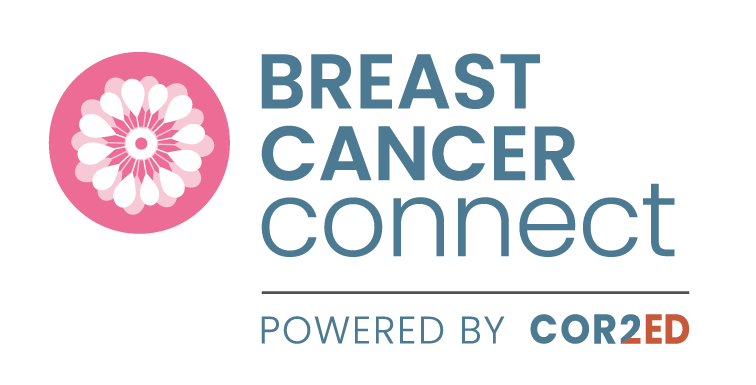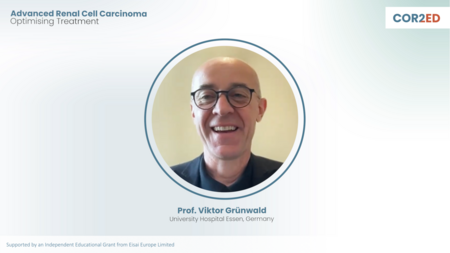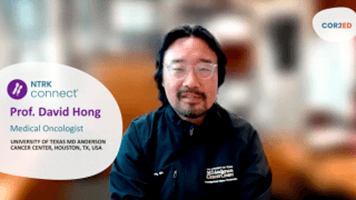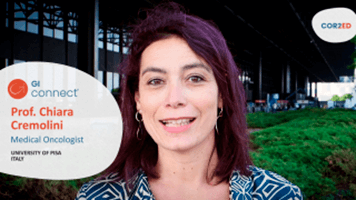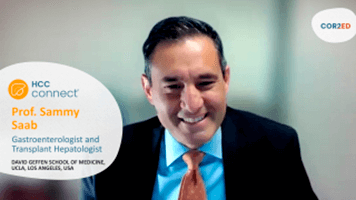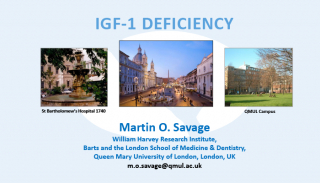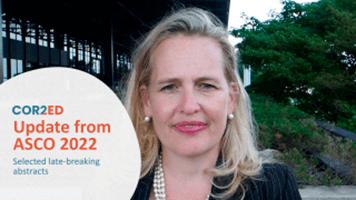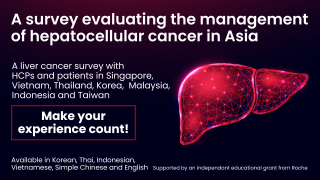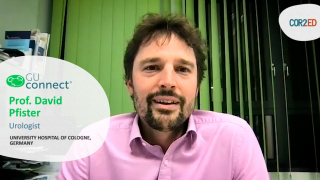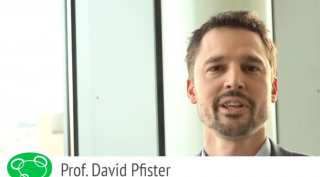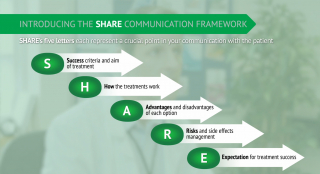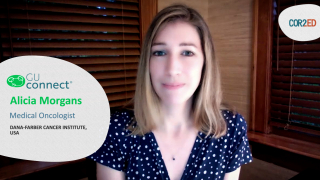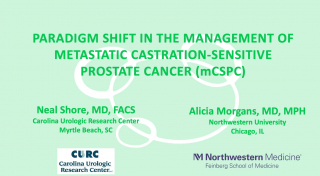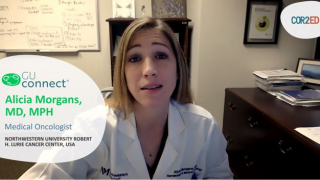
Managing nmCRPC and new imaging modalities
Managing nmCRPC and new imaging modalities
GU CONNECT has produced an interactive e-learning, slide set and video about current opinions on managing nmCRPC and the implications of new imaging modalities. GU CONNECT has produced an interactive e-learning, slide set and video about current opinions on managing nmCRPC and the implications of new imaging modalities.Prof. David Pfister, Assoc. Prof. Alicia Morgans
Take the e-learning and claim your CME credit. Watch the video and download the slides.
Prof. David Pfister
Urologist
University Hospital of Cologne
Germany
Prof. David Pfister has received financial support/sponsorship for research support, consultation, or speaker fees from the following companies:

Assoc. Prof. Alicia Morgans
Medical Oncologist
Dana-Farber Cancer Institute
United States (US)
Assoc. Prof. Alicia Morgans has received financial support/sponsorship for research support, consultation, or speaker fees from the following companies:
E-learning |
60 min
|accreditation:
EACCME |
Feb 2021
This programme was made for you: your opinion matters
Share your feedback in just 4 clicks and help us to continue to create the content you need.
I agree that this educational programme:
Was valuable to me:
1/4
Has improved my knowledge of this topic:
2/4
Is likely to change my clinical practice:
3/4
Was balanced and unbiased:
4/4
download resources
This programme was made for you: your opinion matters
Share your feedback in just 4 clicks and help us to continue to create the content you need.
I agree that this educational programme:
Was valuable to me:
1/4
Has improved my knowledge of this topic:
2/4
Is likely to change my clinical practice:
3/4
Was balanced and unbiased:
4/4
Hi, my name is Alex Drzezga. I’m the chair of the Department of Nuclear Medicine, at the University of Cologne in Germany.
I had the pleasure to contribute to a virtual GU CONNECT Expert Knowledge Share. This session was focused on the somewhat controversial topic of the so-called non-metastatic castration-resistant prostate cancer, and the main aim of the session was to discuss the added value of modern imaging tools, particularly PSMA-PET on selecting treatment options for nmCRPC patients.
This particularly referred to the choice between selecting localised therapy approaches with the potential to delay systemic therapy, versus directly forwarding patients to systemic medications.
In that session, I myself presented a lecture on the added value of molecular imaging and prostate cancer in different clinical situations, including nmCRPC, which in fact shows metastasis in a number of cases on PSMA-PET.
Next, the case study was presented which was then discussed by the distinguished experts' Professor Alicia Morgans and Professor David Pfister with regard to delaying systemic therapy or starting it earlier.
Subsequently, we went into several breakout groups supported by the additional experts' Professor Gert Attard and Professor Neal Shore and joined by participants from all over the world. This resulted in a most lively discussion on the topic.
I think this was a really great session and I wish to thank all the attendees and the experts.
We’d like to invite you now to have a look at the provided slide decks, to learn more about this really important topic.
David Pfister
Hello my name is David Pfister, I’m a Deputy Chairman of the Urological Department of the University of Cologne.
We are doing both medical treatment and surgery in all oncologic patients. So I was very pleased to be part of the Expert Knowledge Share programme of the GU CONNECT group, to discuss castrate-resistant prostate cancer in the non-metastatic disease.
We had a very nice introduction from Professor Drzezga showing us the value of PSMA-PET in this setting, and finally, I showed how, probably, metastasis directed treatment can work out, and finally Alicia Morgans discussed with us the medical treatment in M0 CRPC patients.
Finally, I hope you will enjoy the discussion which was recorded during the meeting and please do not miss to take the e-learning to get your credit points, thank you very much.
Alicia Morgans
Hi my name is Alicia Morgans and I’m a GU Medical Oncologist and Associate Professor of Medicine at Northwestern University in Chicago in the United States.
I was so pleased to participate in the GU CONNECT Expert Knowledge Share in which we discussed imaging controversies and considered whether or not non-metastatic castration-resistant prostate cancer truly exists.
In this conversation, we discussed opportunities for metastasis-directed therapy and potentially preventing systemic therapy or delaying it.
However, I presented that my take was that systemic intensification was truly necessary because patients have not only a longer metastasis-free survival, but a better quality of life and even an overall survival improvement with intensification of AR antagonist therapy in addition to ADT, in the setting of patients having non-metastatic CRPC.
Of course we also discussed how imaging really confounds the issue, and when we cannot see evidence of disease on conventional bone scans and CT scans, but we can see evidence of disease in PSMA or axumin PET scans, we sometimes don’t know what to do. However, patients who had PSMA positive disease but negative conventional imaging were actually included in the studies that led to the approval of the AR antagonist therapies in the non-metastatic CRPC setting and of course gave us our level one, category one evidence to suggest that intensification was the way to go.
Please participate in the e-learning and watch our videos, let us know what you think and please complete the survey at the end, we really appreciate your participation.
E-learning: Current opinions on managing nmCRPC and the implications of new imaging modalities
Following on from the success of the Experts Knowledge Share meeting, GU CONNECT has produced an interactive e-learning, slide set and video.
GUI CONNECT members, Prof. Alicia Morgans (USA) and Prof. David Pfister (Germany), along with guest expert Prof. Alexander Drzezga (Germany) provide an overview of next-generation imaging modalities and consider the potential impact of findings on treatment options for non-metastatic castration-resistant prostate cancer.
Two alternative approaches are presented:
- Delay time to systemic therapy
- Use systemic medications sooner
Take the e-learning and claim your CME credit.
Watch the video and download the slides.
The e-learning is accredited by the European Accreditation Council for Continuing Medical Education (EACCME®) whose system of credits are recognised by AMA and the Royal College of Physicians and Surgeons of Canada.
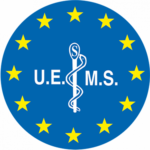
GU CONNECT is an initiative of COR2ED, supported by an Independent Educational Grant from AstraZeneca, Bayer and Eisai Europe Limited.








